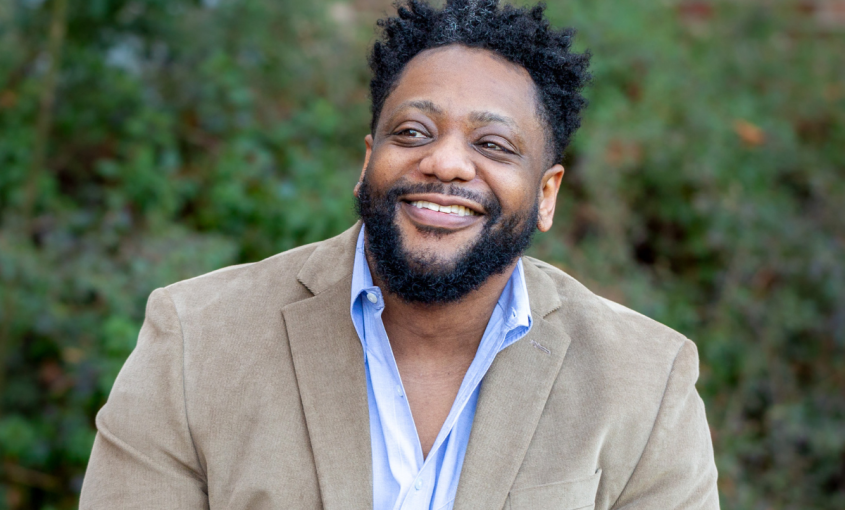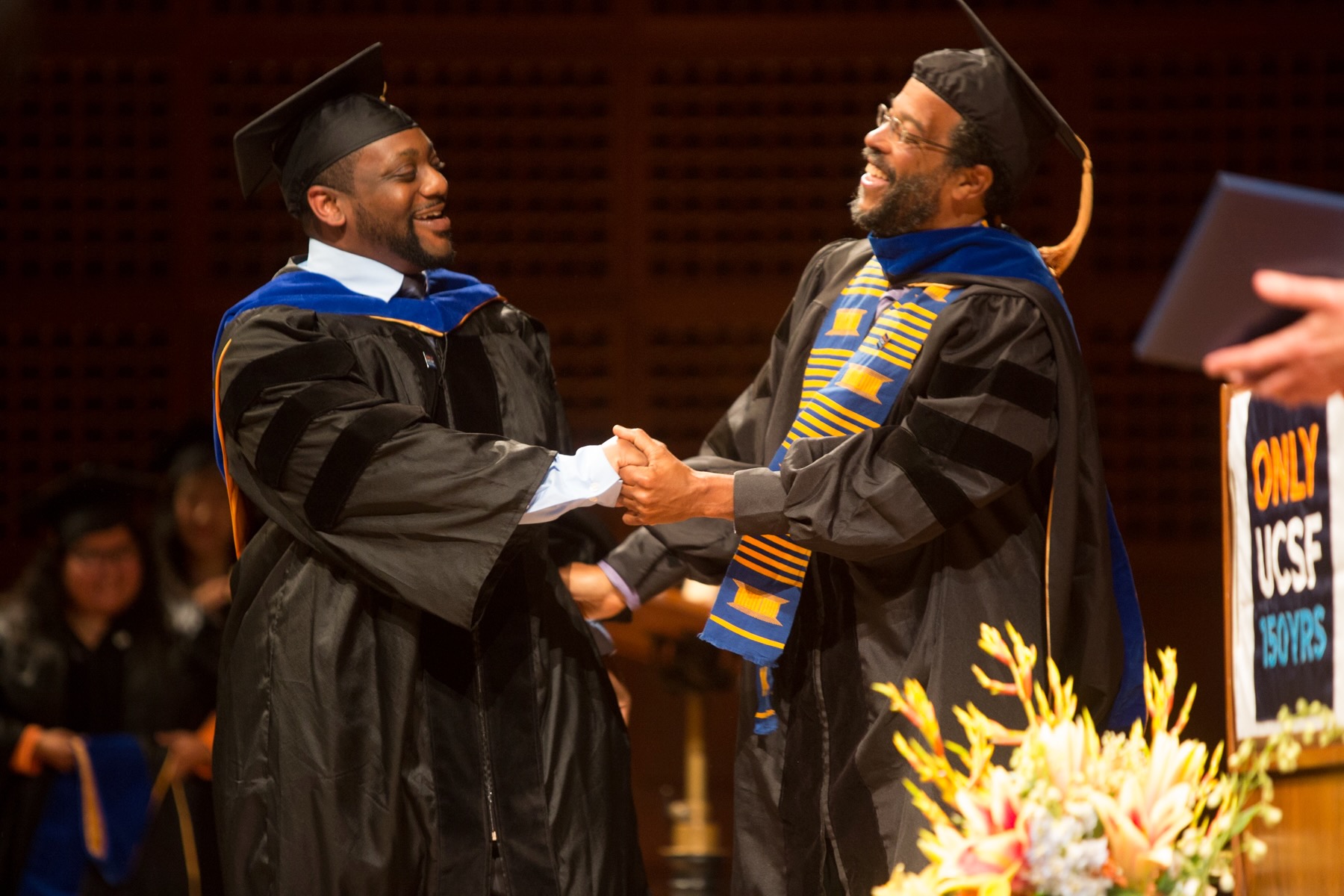
Oliver Rollins
How do neuroscientists think about race?
Oliver Rollins, PhD ‘14, MS, started asking this while a student in UCSF’s PhD in Sociology program, and it’s the question that still drives his work today.
“UCSF, as a premier science and health institution, was the perfect environment to begin exploring issues of race through science and technology,” he says.
Rollins is a qualitative sociologist, assistant professor at the University of Washington, and author of Conviction: The Making and Unmaking of the Violent Brain.
He studies the growing field of brain research technologies and its implications for understanding race and social inequity. While advancements in brain research have positive implications for our health and well-being, explains Rollins, we must be alert to how these new technologies may introduce or reaffirm inequity.
In his research with neuroscientists, Rollins explores questions like, “How do neuroscientists use information about race and ethnicity in their work?”, “How do they interpret racial differences in results?” and “How do they think about the social implications of their results?”
While earning his master’s degree in Pan African (Black) Studies at the University of Louisville, Rollins began to think of violence as a health problem that disproportionately impacts marginalized groups. He enrolled in UCSF’s PhD in Sociology program to study violence prevention, seeking to build safer and healthier communities.
Working alongside his advisor, professor Howard Pinderhughes, PhD, Rollins conducted research with violence prevention programs across San Francisco. But toward the end of his second year in UCSF’s program, Rollins’ intellectual curiosity began to shift.
Through his classes, he observed how scientific research often seeks to identify genetic and neurologic causes of violence, without consideration of social and political influences. “It was through the exceptional teaching and mentorship of UCSF faculty members, particularly Janet Shim and Adele Clarke, that I became interested in how scientific knowledge is constructed and the role that race plays in health research,” says Rollins.

Pinderhughes championed Rollins’ decision to change focus. “So much of my success is because I had a mentor who had my back and supported my decision to pursue something new,” says Rollins. “It was a remarkable model of mentorship and one I strive to follow in my own work with graduate students.”
Rollins spent the remainder of his doctoral program studying race, knowledge construction and neuroscience. After graduation, he completed postdoctoral fellowships at the University of Pennsylvania – first in the Penn Program for Race, Science & Society and then with the Center for Africana Studies – and was also a visiting scholar in the Penn Center for Neuroscience & Society during this time. He was an assistant professor of sociology at the University of Louisville before joining the University of Washington in 2021.
Today, Rollins teaches in the department of American Ethnic Studies and continues his research on how knowledge is constructed as well as on science and technology studies. His current projects include working with neuroscientists to understand the social impact of defining implicit bias and racial prejudice as neurobiological processes and exploring the relationship between science and social justice. Rollins also works with BRAINS, a national program based at the University of Washington, that seeks to improve the success of underrepresented groups in neuroscience.
Rollins says UCSF prepared him to wear the many hats required of a career in academia. “UCSF faculty modeled how to be a teacher, mentor, researcher and administrator,” says Rollins. “The opportunities, support and mentorship I had at UCSF set me up for success.”
DNP ’23, MS ’09, NP
PhD ’97, MPH, FAAN
